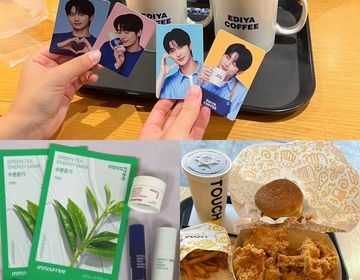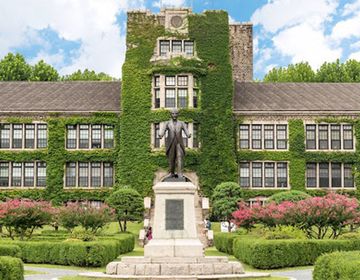A short but meaningful encounter at Gwangjang Market 광장시장
You might have seen it on Runningman, or The Amazing Race Australia, or on Netflix, but nothing beats the real-life experience of visiting Gwangjang Market (광장시장). It is a traditional market that sells almost anything you can think of, between fashion apparel, agricultural crops and fisheries, bedding, handicrafts, candy, desserts, donuts, soondae, and much more food. It dates back to before the Japanese invasions in the early 1900s, when the Japanese seized Namdaemun Market (the original name). In response, a group of Koreans gathered funds to create their own market that wasn’t controlled by the Japanese.
On a Thursday afternoon after class, my roommate and I took the bus over to Jongno-gu to visit the market and to try the delicious food around the various shops. As we roamed around, I thought about how the shop owners have had interactions with people from all around the world, as Gwangjang market is a popular tourist spot. As they share their hard work and make a living, they also get to share their homeland and culture. I thought to myself that, with so much history and hardships in the past, they would have so much to be proud of.
My roommate and I, both Korean-American, stopped by a shop that sold yakgwa (약과), deep-fried wheat-based hangwa, and as we looked through to find a few to buy and take home, the owner came closer and told us about a sale. Then upon hearing our conversation spoken in English, she asked us where we were from. “America,” we said. “Oh, but you look Korean,” she responded. We shared that we were both born to Korean parents, and that we came to Korea as study abroad students to learn more about our heritage.
Our conversation went on, and the owner generously gave us some roasted rice cakes dipped in honey, called garae-tteok (가래떡). “Tell your mothers that you tried some 가래떡 in Korea,” she said. She explained to us why she wanted us to share our experiences with others when we went back to America. “People are becoming more interested in Korea and its culture,” she said. “I hope you are able to continue speaking in Korean even after you leave Korea.” The shop owner went on and said that she hoped that we would find a Korean community in America so that we do not lose touch of our language and heritage.
We said goodbye to the kind shop owner, promised to come back to the market, and went on our way, but not before thanking her for the sweet garae-tteok and yakgwa and the meaningful conversation. As a Korean-American, it felt validating to hear her words and wishes. I hope to see it come true.
Related Posts
K-Pop Stan’s Guide to South Korea: 5 Must-Do Activities While Studying Abroad
By: Jacqueline Lee South Korea is the place to be as a kpop stan, so here are 5 activity ideas that you must do during your time abroad! 1. Collect... keep reading
Courses at Yonsei University—Difficulty, Planning & Advice!
If you're curious about the difficulty of college courses in South Korea, as well as course planning and advice, then this article is for you. In this blog, I delve into my courses at Yonsei University and offer helpful advice for course planning—tune in to learn more!
Capturing Seoul: My Study Abroad Adventure in South Korea
By: Jack Beattie My name is Jack, I attend Penn State and I am currently studying abroad in Seoul, South Korea. I am studying at one of the top universities... keep reading



